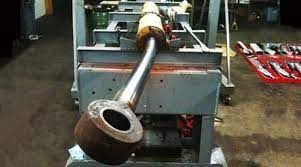Hydraulic systems are widely used in various industrial applications, from heavy machinery to aircraft. The use of hydraulics offers many benefits, including power, precision, and reliability. However, if not maintained properly, hydraulic systems can be dangerous and prone to safety failures. In this blog, we will discuss some preventative measures to ensure hydraulic safety and avoid accidents.
Regular maintenance: One of the most crucial steps to prevent hydraulic safety failures is regular maintenance. A well-maintained hydraulic system is less likely to experience failures due to wear and tear or other issues. Regular maintenance includes checking fluid levels, replacing worn parts, and ensuring proper filtration. Regular maintenance also involves inspection for leaks or damage to hoses and fittings.Proper training: Proper training of personnel working with hydraulic systems is another critical factor in preventing safety failures. Workers must be familiar with the equipment they are working with and understand the potential hazards associated with it. Training should include safety procedures, such as proper use of personal protective equipment, lockout/tag-out procedures, and emergency response.
Use proper fluids and filters: The hydraulic system's performance and reliability depend on the quality of hydraulic fluid and filters used. The fluid used in hydraulic systems must meet the system's specifications, and filters must be changed regularly to ensure proper filtration and prevent contamination.
Monitor operating conditions: Monitoring the operating conditions of a hydraulic system is essential to prevent safety failures. The system's pressure, temperature, and flow rate must be monitored regularly to ensure that they are within safe operating limits. Any deviations from these limits should be addressed immediately to prevent failures.
Avoid overloading: Overloading a hydraulic system can lead to safety failures such as bursting of hoses, fittings, or other components. Operators should be trained to understand the system's capabilities and avoid exceeding its limits. It is also important to properly balance the loads to avoid overloading specific components.
Keep the system clean: Keeping a hydraulic system clean is crucial to prevent safety failures. Dirt and other contaminants can cause damage to components, reduce system performance, and cause leaks. Regular cleaning of the system, including hoses and fittings, can prevent these issues.
Use of Safety Features:Hydraulic systems should be equipped with appropriate safety features such as relief valves, pressure gauges, and temperature sensors. These features can help prevent safety failures by alerting operators to potential hazards and automatically shutting down the system if needed.
In conclusion, hydraulic systems can be safe and reliable if proper preventative measures are taken. Regular maintenance, proper training, using appropriate fluids and filters, monitoring operating conditions, avoiding overloading, and keeping the system clean are all essential steps to prevent hydraulic safety failures. By following these measures, you can ensure the safe operation of your hydraulic system and prevent accidents.




